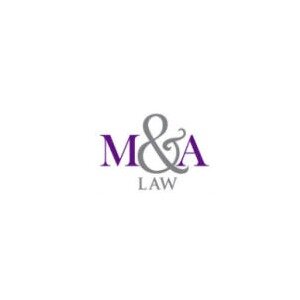Best Civil Rights Lawyers in Sri Lanka
Share your needs with us, get contacted by law firms.
Free. Takes 2 min.
Or refine your search by selecting a city:
List of the best lawyers in Sri Lanka
About Civil Rights Law in Sri Lanka
Civil rights in Sri Lanka are a foundational aspect of the legal framework which ensures the protection and enhancement of the individual rights of citizens, including freedom of speech, equality before law, and protection from discrimination based on race, gender, and religion. These rights are enshrined in the Sri Lankan Constitution and are crucial for maintaining democratic governance and social equity. Civil rights law is designed to protect these rights from infringement by individuals, government entities, and other organizations.
Why You May Need a Lawyer
Individuals may require legal assistance with civil rights in a variety of circumstances. For example, if someone believes they have experienced unlawful discrimination, a legal professional can help them understand their rights and explore avenues for redress. Legal representation may also be crucial for those who seek to challenge government decisions that infringe on individual rights, require advocacy in court for enforcement of civil liberties, or need guidance on issues related to freedom of expression and assembly.
Local Laws Overview
Sri Lanka's Constitution, most notably through Chapter III, provides fundamental rights to its citizens. These rights include, but are not limited to, the right to equality, freedom from arbitrary arrest, freedom of speech and expression, and the right to non-discrimination. The Human Rights Commission of Sri Lanka is tasked with monitoring and ensuring the protection of these rights. Additionally, various statutory enactments and legal precedents further interpret and develop the scope of civil rights within the nation.
Frequently Asked Questions
What are fundamental rights under the Sri Lankan Constitution?
The Sri Lankan Constitution lists fundamental rights such as equality before the law, freedom from discrimination, and freedom of expression among others. These rights are detailed in Chapter III of the Constitution.
How can I file a complaint if my civil rights have been violated?
Complaints regarding civil rights violations can be filed with the Human Rights Commission of Sri Lanka, or one may initiate legal proceedings in the appropriate judicial forum, such as the Supreme Court for fundamental rights applications.
What constitutes discrimination under Sri Lankan law?
Discrimination is the unlawful treatment of individuals based on race, gender, religion, caste, or other categories protected under Sri Lankan law.
Are freedom of speech and freedom of the press guaranteed in Sri Lanka?
Yes, freedom of speech and press are guaranteed under the Constitution. However, these freedoms are subject to limitations necessary in the interests of national security, public order, and morality.
What role does the Human Rights Commission of Sri Lanka play?
The Commission is responsible for promoting and protecting human rights in Sri Lanka, including investigating complaints of violations and advising the government on human rights issues.
Can the government impose restrictions on public gatherings?
Yes, the government may impose restrictions on public gatherings, but such restrictions must be justifiable as being necessary for maintaining public order and safety.
What legal protections are available against unlawful arrest?
Sri Lankan law provides protections against unlawful arrest, including the right to be informed of the reasons for arrest and the right to legal counsel.
Is there a specific law addressing workplace discrimination?
While there is no standalone legislation for workplace discrimination, related principles can be derived from general anti-discrimination laws and labor laws in Sri Lanka.
What can I do if I face religious discrimination?
Victims of religious discrimination may seek legal recourse through filing a complaint with the Human Rights Commission or pursuing a fundamental rights application in the Supreme Court.
Can non-citizens claim civil rights protection in Sri Lanka?
Non-citizens may have some protections but are typically not accorded the full scope of fundamental rights available to Sri Lankan citizens.
Additional Resources
Individuals seeking further information or assistance on civil rights issues may consider reaching out to organizations such as the Human Rights Commission of Sri Lanka, various non-governmental organizations focused on human rights, such as Amnesty International's local chapter, or legal aid institutions that offer pro-bono services. Additionally, visiting governmental bodies like the Ministry of Justice can provide guidance and support for legal concerns.
Next Steps
If you believe your civil rights have been violated, it is essential to seek legal advice promptly. Begin by documenting all incidents related to the alleged violation. Consult with a reputable lawyer who specializes in civil rights to discuss your situation and explore potential legal actions. If necessary, file a complaint with the Human Rights Commission or consider legal proceedings in the appropriate court.
Lawzana helps you find the best lawyers and law firms in Sri Lanka through a curated and pre-screened list of qualified legal professionals. Our platform offers rankings and detailed profiles of attorneys and law firms, allowing you to compare based on practice areas, including Civil Rights, experience, and client feedback.
Each profile includes a description of the firm's areas of practice, client reviews, team members and partners, year of establishment, spoken languages, office locations, contact information, social media presence, and any published articles or resources. Most firms on our platform speak English and are experienced in both local and international legal matters.
Get a quote from top-rated law firms in Sri Lanka — quickly, securely, and without unnecessary hassle.
Disclaimer:
The information provided on this page is for general informational purposes only and does not constitute legal advice. While we strive to ensure the accuracy and relevance of the content, legal information may change over time, and interpretations of the law can vary. You should always consult with a qualified legal professional for advice specific to your situation.
We disclaim all liability for actions taken or not taken based on the content of this page. If you believe any information is incorrect or outdated, please contact us, and we will review and update it where appropriate.
Browse civil rights law firms by city in Sri Lanka
Refine your search by selecting a city.

















